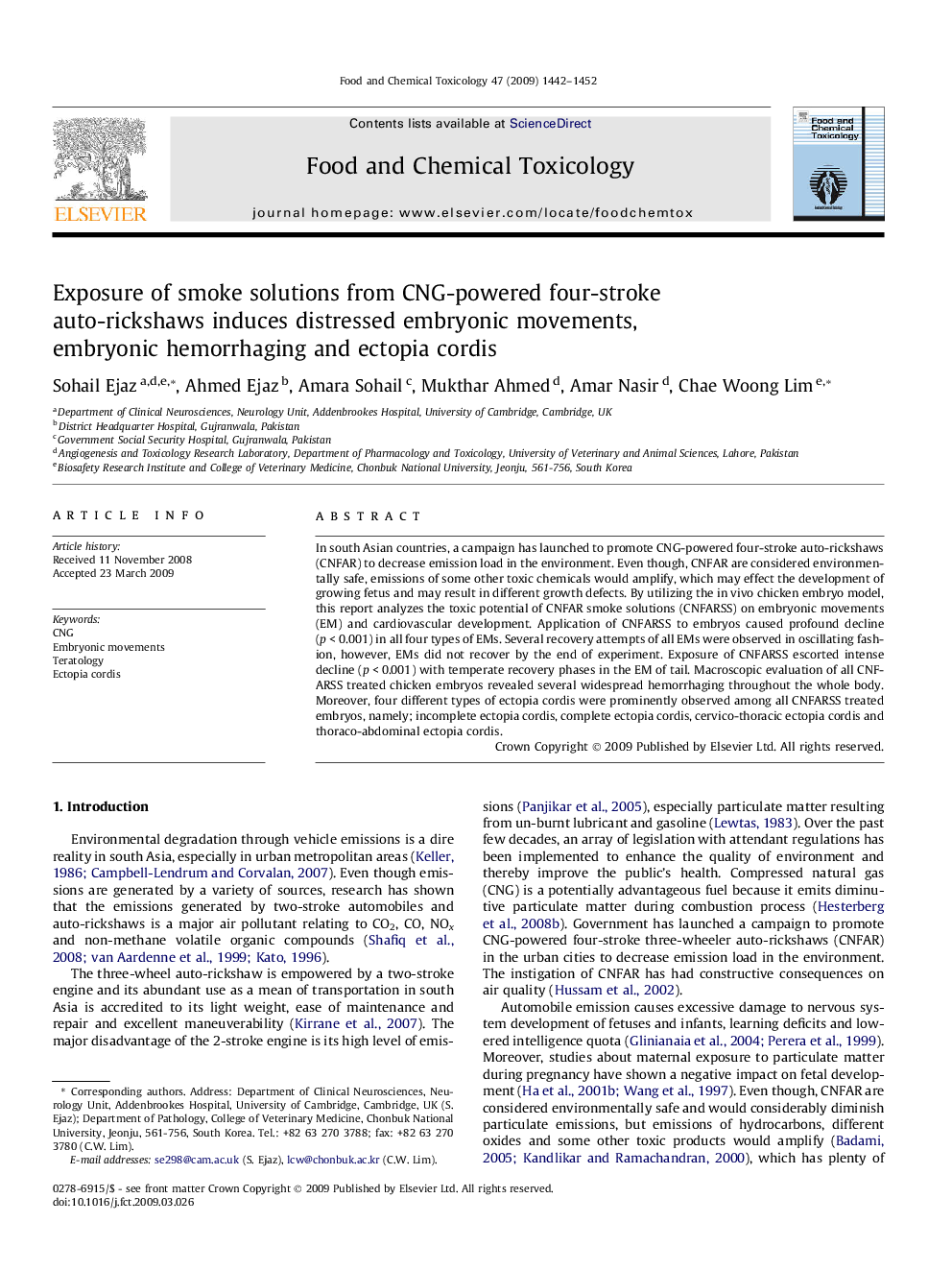| Article ID | Journal | Published Year | Pages | File Type |
|---|---|---|---|---|
| 2586248 | Food and Chemical Toxicology | 2009 | 11 Pages |
In south Asian countries, a campaign has launched to promote CNG-powered four-stroke auto-rickshaws (CNFAR) to decrease emission load in the environment. Even though, CNFAR are considered environmentally safe, emissions of some other toxic chemicals would amplify, which may effect the development of growing fetus and may result in different growth defects. By utilizing the in vivo chicken embryo model, this report analyzes the toxic potential of CNFAR smoke solutions (CNFARSS) on embryonic movements (EM) and cardiovascular development. Application of CNFARSS to embryos caused profound decline (p < 0.001) in all four types of EMs. Several recovery attempts of all EMs were observed in oscillating fashion, however, EMs did not recover by the end of experiment. Exposure of CNFARSS escorted intense decline (p < 0.001) with temperate recovery phases in the EM of tail. Macroscopic evaluation of all CNFARSS treated chicken embryos revealed several widespread hemorrhaging throughout the whole body. Moreover, four different types of ectopia cordis were prominently observed among all CNFARSS treated embryos, namely; incomplete ectopia cordis, complete ectopia cordis, cervico-thoracic ectopia cordis and thoraco-abdominal ectopia cordis.
